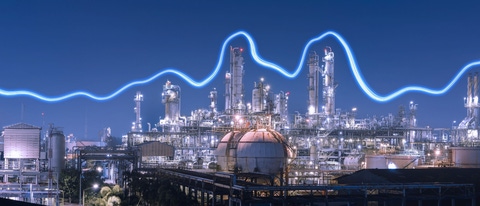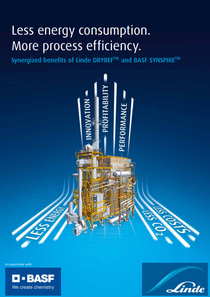Syngas Catalysts
Syngas Catalysts
At BASF, we understand the importance of reliable technology solutions that utilize natural gas and innovative feedstocks such as biogas and CO2 rich syngas. Syngas is an essential intermediate in the development of sustainable fuels and chemicals, including gas-to-liquids (GTL), methanol-to-olefins, synthetic natural gas (SNG) and fuel cells. We are committed to providing advanced catalytic technologies that accelerate your transition to a low-emission syngas economy, enabling you to meet your short-term sustainability goals.
Why BASF?
Our catalysts provide solutions for multiple applications and renewable feedstocks such as: Oils & Fats Hydrogenation, Fatty Alcohol & Furfuryl Alcohol Production, Fatty Amine & Fatty Nitrile Synthesis, Sugar Hydrogenation and Alcohol Dehydration. In addition to our well-established catalyst portfolio, BASF offers both a process and catalysts for the conversion of glycerin to 1,2-propanediol (MPG). Glycerin is a byproduct of the biodiesel industry, and BASF’s innovative technology now allows for the efficient conversion of glycerin into higher-value chemicals that are useful across a range of industries.
Products
BASF’s comprehensive portfolio of catalysts for various applications is rooted in profound material science expertise and produced in close cooperation with our customers.

Dry Reforming
BASF's SYNSPIRE® catalyst G1-110 was specifically designed to reform methan and methan/CO2 mixture in significantly dryer conditions than a conventional catalyst.
Thanks to its unique properties and in combination with Linde´s DRYREF´s syngas generation plant a number of compeling benefits in terms of OPEX, CAPEX, and CO2 footprint can be reached.
Syngas is a key intermediate in the emerging technologies for gas-to-liquids (GTL) and methanol-to-olefins.
Synspire® - our dry reforming catalysts for advantageous plant operation.
Methanation for SNG plants
With a new technology and an innovative catalyst concept, CO2 & H2 can be used to produce synthetic natural gas (SNG) via the methanation reaction. The SNG produced can be certified as carbon-neutral when considering the utilization of CO2 in the process feed.
The carbon-neutral SNG product may be entered into the gas grid at any location. It can later be consumed from the grid to use it at any location.

